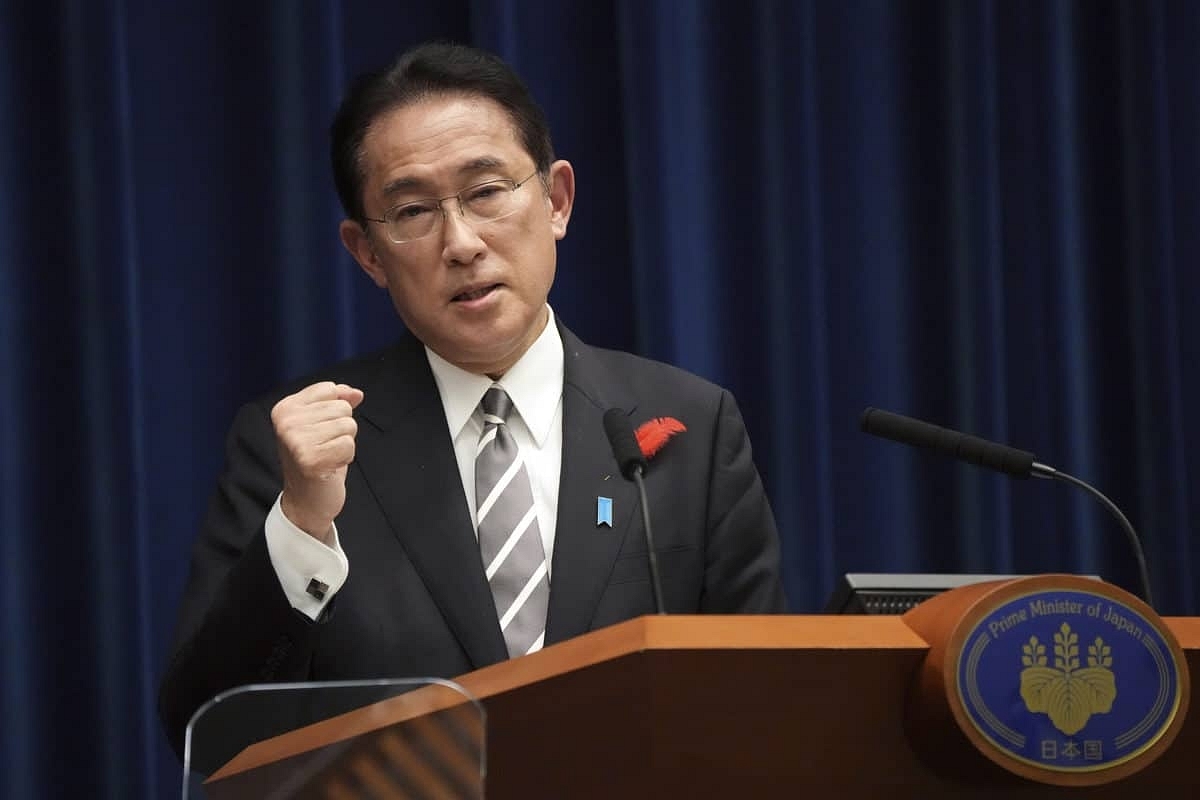News Brief
Japan Wants To Counter China's Belt And Road Initiative

Japanese Prime Minister Fumio Kishida.
The Japanese government has announced a new policy to compete with China's Belt and Road infrastructure campaign by offering foreign aid to developing nations proactively, rather than waiting for requests.
The revised Development Cooperation Charter outlines this approach, which will complement the existing request-based process. The cabinet approved these changes, marking the first revision of Japan's Official Development Assistance (ODA) charter since 2015, as reported by Asia Nikkei.
Under Prime Minister Fumio Kishida's leadership, Japan aims to position itself as a donor that responds to the needs of recipient countries, leveraging its strengths in clean energy and digital technology.
During Kishida's visit to India in March, he emphasised the importance of "quality infrastructure investment" as a guiding principle to attract countries in the global south through foreign aid.
Japan has allocated a budget of 570.9 billion yen ($4.09 billion) for ODA in the current fiscal year. While funding has gradually increased since 2015, it still falls short of the peak of 1.16 trillion yen in fiscal 1997.
In contrast, China's Belt and Road investments reached an estimated $100 billion annually until 2019, and despite scaling back due to the COVID-19 pandemic, China continues to allocate $60 billion to $70 billion per year for such investments.
Critics have raised concerns about China's loans to developing nations, accusing Beijing of creating "debt traps" and gaining control over infrastructure usage rights.
In contrast, Japan's new Development Cooperation Charter emphasises cooperation with recipient countries without economic coercion, safeguarding their independence and sustainability.
Realistically, Japan is not expected to surpass China in terms of foreign aid. While allocating 0.7 per cent of gross national income to ODA is considered the international benchmark, Japan's share has remained at 0.4 per cent.
Instead, Japan aims to prioritise quality over quantity by offering expertise in areas such as decarbonisation projects for fossil fuel-dependent nations and digital training for professionals. Additionally, Japan plans to collaborate with partners to leverage private-sector funds and enhance ODA investments.
Japan's ODA efforts date back to the 1950s as part of the Second World War reparations. In 1989, Japan surpassed the US to become the largest aid donor.
While it remained the top giver among members of the Development Assistance Committee, a body under the Organization for Economic Cooperation and Development, from 1993 to 2000, the US regained the lead thereafter.
Japan provided development assistance to China starting in 1979, but such aid ceased last year as it fell out of favour in Tokyo.
Support Swarajya's 50 Ground Reports Project & Sponsor A Story
Every general election Swarajya does a 50 ground reports project.
Aimed only at serious readers and those who appreciate the nuances of political undercurrents, the project provides a sense of India's electoral landscape. As you know, these reports are produced after considerable investment of travel, time and effort on the ground.
This time too we've kicked off the project in style and have covered over 30 constituencies already. If you're someone who appreciates such work and have enjoyed our coverage please consider sponsoring a ground report for just Rs 2999 to Rs 19,999 - it goes a long way in helping us produce more quality reportage.
You can also back this project by becoming a subscriber for as little as Rs 999 - so do click on this links and choose a plan that suits you and back us.
Click below to contribute.
Latest